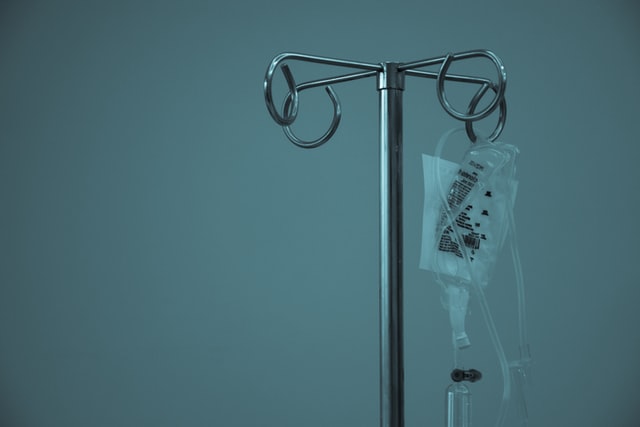Life in the Glasshouse
The machines are all around her, clasping bags in lurid colours to their metal bosoms: skeletal white, putrid green, sickly yellow. And all attached to sharp needles; and not just one for her each end. One for the stomach, one for the bladder, one for the veins, they all want in; come one, come all, roll up, roll up for the invasion of a lifetime. Several hang out of her neck in bright primary colours like a child’s nursery gone badly wrong.
It’s like water torture in here. Beep. Beep. Beep. Each machine with its own rhythm, its own dead drumbeat, stalking her body’s every ebb and flow. Beep. Beep. Beep. And she finds herself waiting for the next, listening, listening, holding her breath, terrified of the night and passing time, terrified of the shadows and the bright neon lights, but holding her breath, because every beep, every noise the machine makes reassures her that she’s still here. Beep. Beep. Beep. She’s okay, she still has consciousness, terrifying though it might be; and she holds her breath, not daring to breathe, because what if that machine alarms, what if something goes wrong, what if the gossiping nurses are too far down the corridor to hear the sirens, what if she slowly drains away from life, here on her own in the dark and the shadows?
Her fingers are sore from constant pricking, her head pounds like a drunken drummer from the anaesthetic, her muscles hurt with her every move; every part of her body is jostling at her for attention like a spoilt child. But for all of this cacophony of jarring and aching tearing her mind, one part of her body is silent – is deep within her. Eerily, broodingly, forebodingly silent.
What is a pancreas anyway? she thinks. She can’t say she’d never heard of it, she knew it was there, vaguely, but what does it do? Is it really so important? But it would seem so, because it is this, this little organ, which is slowly killing her, crippling her from inside like a poorly designed concertina, invading her tissues and turning light to dark in the universe of her body. Strange that this, this little unknown organ no bigger than her hand, should be the thing playing God with her life, and little by little reducing her to a helpless child again, scared of the dark.
This piece stems directly from a woman I met whilst working as an auxiliary nurse during my gap year; she had recently recovered from breast cancer but had then been diagnosed with terminal pancreatic cancer. She was a lovely woman and we became quite close during her month-long stay on the ward. I called the piece ‘Life in the Glasshouse’ because of the room she stayed in: the so-called glass-house, a horrible, tiny room with huge frosted plastic walls. She was very anxious about her condition and prognosis and I thought it would be interesting to write something from her perspective rather than that of a nurse (to whom much was routine). It was something I had been meaning to write for a while. She died at home a few months after leaving the ward.

Very sensitive and moving. If and when I get to that stage in my life, I would want to end it with dignity and in God’s peace.